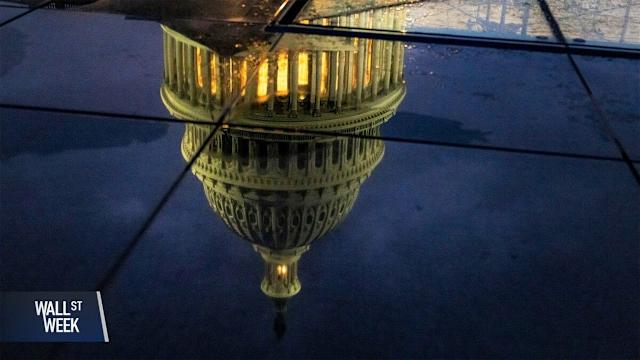Tax Bill Would Add $3.3 Trillion to US Deficits, CBO Says

(Bloomberg) -- The Senate version of President Donald Trump’s tax and spending measure would add nearly $3.3 trillion to US deficits over a decade, according to a new estimate from the nonpartisan Congressional Budget Office.
Most Read from Bloomberg
-
Philadelphia Transit System Votes to Cut Service by 45%, Hike Fares
-
Squeezed by Crowds, the Roads of Central Park Are Being Reimagined
-
Sao Paulo Pushes Out Favela Residents, Drug Users to Revive Its City Center
-
Sprawl Is Still Not the Answer
-
Mapping the Architectural History of New York’s Chinatown
The CBO score for the so-called One Big Beautiful Bill reflects a $4.5 trillion decrease in revenues and a $1.2 trillion decrease in spending through 2034, relative to a current law baseline.
The Senate bill, by Republican request, was also scored as saving $507.6 billion over a decade relative to a current policy baseline. The party’s lawmakers have sought to use the accounting maneuver to permanently extend President Donald Trump’s 2017 income-tax cuts, and score them as costing nothing.
The bill includes $4.5 trillion worth of tax cuts, according to a Saturday estimate from the Joint Committee on Taxation.
Use of the current policy baseline is unprecedented for the reconciliation process the Republicans are using to approve the massive legislation with a simple majority. The cost of a bill is normally measured according to what effect it would have on the federal budget under current law. But the Republicans want to revise the process by assuming that current policies remain in place indefinitely.
The bill’s cost has been a big problem for fiscal conservatives. It has faced several obstacles in the Senate as lawmakers have demanded conflicting changes. Then a number of spending cuts included in the package were changed as they did not comply with Senate rules for the reconciliation process.
Earlier: Trump Speeds Up Tax Bill Deadline as Tentative SALT Deal Reached
Democrats and some economists have argued use of the current policy baseline allows GOP lawmakers to circumvent rules that would otherwise limit the bill’s fiscal effects. That, they say, imperils the nation’s fiscal trajectory.
“Republicans can use whatever budgetary gimmicks they want to try and make the math work on paper,” Senate Minority Leader Chuck Schumer said Sunday. “But you can’t paper over the real life consequences of adding tens of trillions to the debt.”
The cost of the Senate bill is higher than the CBO’s $2.8 trillion projected cost of the version passed by the House last month, which also accounts for economic effects and higher interest rates spurred by larger debt loads.
Story ContinuesThe legislation encompasses much of Trump’s economic agenda. In addition to the 2017 tax break extension, it would make make various spending cuts to safety net programs, including Medicaid and the Supplemental Nutrition Assistance Program, or food stamps.
The Senate version made three business tax breaks permanent, limits deductions on new tax breaks on workers’ tips and overtime and includes changes to some of the Medicaid provisions.
House and Senate Republicans have also reached a deal to alter the cap on federal deductions for state and local taxes. That limit will remain at the $40,000 limit set in the House bill, but it will be limited to a five-year period, rather than 10 years.
--With assistance from Erik Wasson.
(Updates to add Schumer quote. An earlier version was corrected to reflect that CBO’s current policy estimate shows the bill will save $507.6 billion over a decade.)
Most Read from Bloomberg Businessweek
-
America’s Top Consumer-Sentiment Economist Is Worried
-
How to Steal a House
-
Inside Gap’s Last-Ditch, Tariff-Addled Turnaround Push
-
Apple Test-Drives Big-Screen Movie Strategy With F1
-
Does a Mamdani Victory and Bezos Blowback Mean Billionaires Beware?
©2025 Bloomberg L.P.
此税收法案根据CBO的报告将使美国赤字增加3.4万亿美元再次凸显了政策制定者在平衡国家预算与促进经济成长之间的复杂权衡,而不加节制地增税以降低短期财政支出,可能会在刺激经济增长方面产生负面影响并加剧政府未来的融资压力和利率问题。Are fiscal prudence and economic stimulation mutually exclusive goals or can they be harmonized through nuanced tax policy? 这个问题将是关键的政策考量点之一, 对国家和全球经济而言着实具有考验性。(完)
CBO's projection of a $3.4 Trillion ripple effect on US deficits from the proposed Tax Bill underscores its potential significance in shaping America’ economy, requiring careful consideration regarding long-term sustainability.
该报道指出,如果国会通过这项税收法案(Tax Bill),根据美国预算办公室的数据将会导致未来十年中美国的赤字规模增加3.6万亿美元,这使得我们再次看到即使是为了提高经济效率或刺激经济增长的良政举措也可能带来沉重的公共财政负担的风险提醒我们必须谨慎平衡政策短期激励与长远可持续性之间的关系?
The CBO's projection that the Tax Bill could add $3.2 trillion to US deficits raises serious concerns over its economic impact on federal spending and potential future solutions required for balanced budget recovery.














